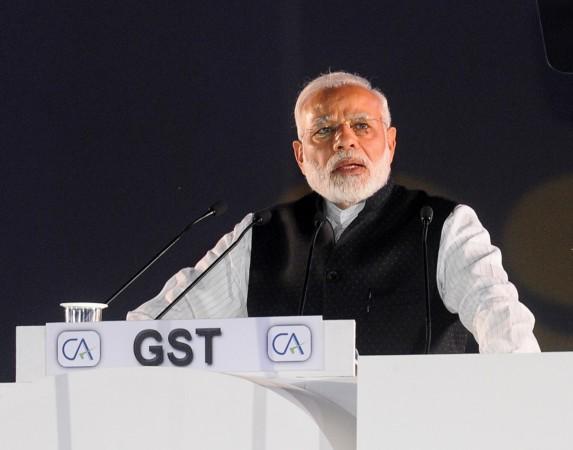
Aiming for a graft-free rule, the BJP-led NDA government is planning to launch a crackdown on corrupt officials with dubious track records from August 15.
Prime Minister Narendra Modi has often mentioned how corruption has come down in the country after his government came to power in 2014.
Criticising the previous Congress-led UPA government over multiple corruption cases like 2G spectrum, coal allocation and CWG scam, the government at the centre has made the graft-free rule a priority to polish its image.
The government is now preparing a crackdown on corrupt officials, India Today reported. The vigilance department of every ministry has also been asked to prepare a dossier of officials based on their service records to identify the ones who are involved in corrupt practices.
Various departments and all para military forces have been given a deadline of August 5 to finish the list so that further action can be initiated.
The dossier of corrupt practices will reportedly be based on the complaint, enquiry report and the conduct of these officials. Based on these observations, it will be examined whether major or minor penalty had been imposed against these officials.
The list of officials involved in corrupt practices will be approved by the competent authority after which the vigilance department will keep an eye on these officials.
The list will be sent to CBI and CVC so that necessary action can be taken, be it to prosecute or take departmental action including a penalty or dismissal from service, the report added.
![[Representational image] Bribe](https://data1.ibtimes.co.in/en/full/656912/bribe.jpg?h=450&l=50&t=40)
Amended rules
In an attempt to speed up the decision-making process for many of the cases that had been pending for a long time, the government, in June, announced a six-month deadline to probe these cases.
According to a 50-year-old rule, there had been no time frame to investigate these cases. The Department of Personnel and Training (DoPT) had amended Central Civil Services Rules of 1965 and had decided the timeline for critical stages in inquiry proceedings, India Today reported.
Now, it has been made clear that the inquiring authority must submit the report within six months. However, if the case demands more time, then an extension of not more than six months will be given provided the reasons are recorded in writing by the disciplinary authority.














